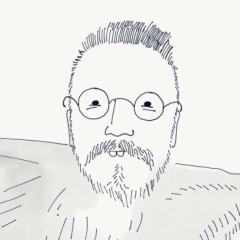НЕЧУВСТВИТЕЛЬНОСТЬ К ПЕРЕЖИВАНИЯМ ДРУГОГО
Нечувствительность к переживаниям другого человека. Неумение поставить себя на место другого. После рассказа Вадима Трунина "Последний хлеб" тема (https://vk.com/wall4752_375) нашла продолжение в реальной жизни. Пришёл вчера в офис. Одна из сотрудниц с утра уже разоряется. Наезд на уборщицу. Её офисные туфли оказались на столе. Как только она её не обозвала. И то, что она (они) с рождения живут в грязи, не моются, не убираются. Как французы. Так и сказала. Почему именно французы? А уборщица из Средней Азии. И наезд этот уже, видимо, не в первый раз. Правда, пока за глаза. Но отборным матом. Тема мата среди женского населения офиса - это отдельная тема. Но откуда такое представление о жителях Средней Азии? И вообще, такое отношение к чужому труду? А проблема в том, что эта девушка как представитель офисного планктона не может поставить себя на место другого человека. Уборщица каждый день убирает значительные площади. Ведь не случайно, именно мигрантов используют для этой работы. Поменьше платить и побольше делать. Работоспособность азиатов выше, чем русских. Я вижу это по нашему дворнику-узбеку, которому уже далеко за 50, а он целый день пашет на разных участках. Я его встречаю везде. А продавщица овощей из Самарканда... Я только к ней и хожу именно потому, что она всегда приветливая, предупредительная, работает весело и не обманывает. А работает по 12 часов каждый день без выходных. Так вот, про уборщицу. В нашем офисе работают, в основном, одни женщины. У каждой стоят туфли под столом. Скажите, как уборщице каждый день мыть полы? Поднимать туфли каждого? Наверняка, этот агент скажет, что это её обязанность. Это какое-то отношение хозяина к своему рабу. А ведь так и на улице многие себя ведут, бросая мусор на землю. Мол, таджик уберёт. Это его работа.
Вообще, чувствительность к боли души другого можно разделить на уровни. Есть люди, которые интуитивно чувствуют другого как себя. В них говорит то, что называется голосом совести. Есть те, кто по внешним признакам видит, что у человека проблемы и пытается как-то понять, в чём они, и войти в их положение. Это, скорее, связано с воспитанием. Есть те, кто делает это по обязанности или чтобы лучше выглядеть в обществе. Есть чиновники, которым за это платят деньги. Меньше всего людей, внутренне ощущающих другого. Сейчас надо хотя бы добиться того, чтобы было модно, принято в обществе быть внимательным к другим, вне зависимости от того, кто перед тобой: друг или враг, чёрный или белый. Но выживать сможет только то общество, где не традиции заботы о ближнем существуют как обязанность, а где человек чувствует своё единство со всеми другими людьми. Человечество выживет, если на уровне души люди будут чувствовать свою связь с другими, прислушиваться к голосу своей совести. Чувствовать тот самый дискомфорт, который ощутил герой рассказа "Последний хлеб" В.Трунина (http://litfile.net/pages/504145/515000-516000?page=35). И это станет нормой, естественным. Когда на улице лежит человек, и всем кто проходит мимо, становится больно, и чтобы избавиться от боли, они стараются что-то сделать, как будто это их рука или нога заболела. Или зубная боль вдруг возникла и мучает. Даже ненависть более продуктивное чувство, чем равнодушие. Если мы ненавидим, это значит, мы хотим изменить другого. Т.е., нам не всё равно. Равнодушие - это отсечение всякой своей связи с окружающим миром. А клетка, отсекающая себя от всего организма, нежизнеспособна.
Нечувствительность к переживаниям другого человека. Неумение поставить себя на место другого. После рассказа Вадима Трунина "Последний хлеб" тема (https://vk.com/wall4752_375) нашла продолжение в реальной жизни. Пришёл вчера в офис. Одна из сотрудниц с утра уже разоряется. Наезд на уборщицу. Её офисные туфли оказались на столе. Как только она её не обозвала. И то, что она (они) с рождения живут в грязи, не моются, не убираются. Как французы. Так и сказала. Почему именно французы? А уборщица из Средней Азии. И наезд этот уже, видимо, не в первый раз. Правда, пока за глаза. Но отборным матом. Тема мата среди женского населения офиса - это отдельная тема. Но откуда такое представление о жителях Средней Азии? И вообще, такое отношение к чужому труду? А проблема в том, что эта девушка как представитель офисного планктона не может поставить себя на место другого человека. Уборщица каждый день убирает значительные площади. Ведь не случайно, именно мигрантов используют для этой работы. Поменьше платить и побольше делать. Работоспособность азиатов выше, чем русских. Я вижу это по нашему дворнику-узбеку, которому уже далеко за 50, а он целый день пашет на разных участках. Я его встречаю везде. А продавщица овощей из Самарканда... Я только к ней и хожу именно потому, что она всегда приветливая, предупредительная, работает весело и не обманывает. А работает по 12 часов каждый день без выходных. Так вот, про уборщицу. В нашем офисе работают, в основном, одни женщины. У каждой стоят туфли под столом. Скажите, как уборщице каждый день мыть полы? Поднимать туфли каждого? Наверняка, этот агент скажет, что это её обязанность. Это какое-то отношение хозяина к своему рабу. А ведь так и на улице многие себя ведут, бросая мусор на землю. Мол, таджик уберёт. Это его работа.
Вообще, чувствительность к боли души другого можно разделить на уровни. Есть люди, которые интуитивно чувствуют другого как себя. В них говорит то, что называется голосом совести. Есть те, кто по внешним признакам видит, что у человека проблемы и пытается как-то понять, в чём они, и войти в их положение. Это, скорее, связано с воспитанием. Есть те, кто делает это по обязанности или чтобы лучше выглядеть в обществе. Есть чиновники, которым за это платят деньги. Меньше всего людей, внутренне ощущающих другого. Сейчас надо хотя бы добиться того, чтобы было модно, принято в обществе быть внимательным к другим, вне зависимости от того, кто перед тобой: друг или враг, чёрный или белый. Но выживать сможет только то общество, где не традиции заботы о ближнем существуют как обязанность, а где человек чувствует своё единство со всеми другими людьми. Человечество выживет, если на уровне души люди будут чувствовать свою связь с другими, прислушиваться к голосу своей совести. Чувствовать тот самый дискомфорт, который ощутил герой рассказа "Последний хлеб" В.Трунина (http://litfile.net/pages/504145/515000-516000?page=35). И это станет нормой, естественным. Когда на улице лежит человек, и всем кто проходит мимо, становится больно, и чтобы избавиться от боли, они стараются что-то сделать, как будто это их рука или нога заболела. Или зубная боль вдруг возникла и мучает. Даже ненависть более продуктивное чувство, чем равнодушие. Если мы ненавидим, это значит, мы хотим изменить другого. Т.е., нам не всё равно. Равнодушие - это отсечение всякой своей связи с окружающим миром. А клетка, отсекающая себя от всего организма, нежизнеспособна.
INSENSITIVITY TO THE EXPERIENCES OF OTHER
Insensitivity to the feelings of another person. Inability to put oneself in the place of another. After Vadim Trunin’s story “The Last Bread”, the topic (https://vk.com/wall4752_375) found continuation in real life. Came to the office yesterday. One of the employees in the morning already goes bankrupt. Hitting the cleaning lady. Her office shoes were on the table. As soon as she did not call her. And the fact that she (they) from birth live in the dirt, do not wash, do not clean. Like the french. She said so. Why precisely the French? A cleaning lady from Central Asia. And this hitting is probably not the first time. True, while for the eyes. But selective mate. The topic of mate among the female population of an office is a separate topic. But where does such an idea of the inhabitants of Central Asia come from? And in general, such an attitude to the labor of others? And the problem is that this girl as a representative of the office plankton cannot put herself in the place of another person. A cleaning woman removes large areas every day. It is not by chance that migrants are used for this work. Less pay and do more. The performance of Asians is higher than the Russians. I see this in our Uzbek janitor, who is already far beyond 50, and he has been plowing all day in different areas. I meet him everywhere. A saleswoman of vegetables from Samarkand ... I only go to her and just because she is always friendly, helpful, works fun and does not deceive. And it works for 12 hours every day without days off. So, about the cleaning lady. Our office employs mostly women alone. Each has shoes under the table. Tell me how to clean the floor every day? Raise everyone's shoes? Surely, this agent will say that it is her duty. This is some kind of master's attitude to his slave. But on the street, many behave, throwing garbage on the ground. Like, Tajik will remove. Its' his job.
In general, the sensitivity to the pain of the soul of another can be divided into levels. There are people who intuitively feel the other as themselves. They say what is called the voice of conscience. There are those who, outwardly, see that a person has problems and is trying to somehow understand what they are and to get into their position. It is rather connected with upbringing. There are those who do it by duty or to look better in society. There are officials who are paid for it. Least of all people internally feeling the other. Now we need to at least ensure that it is fashionable, it is customary in society to be attentive to others, regardless of who is in front of you: friend or foe, black or white. But only a society can survive, where not the traditions of caring for one’s neighbor exist as a duty, but where a person feels his unity with all other people. Humanity will survive, if at the soul level people feel their connection with others, listen to the voice of their conscience. Feel the same discomfort that V.Trunin, the hero of the story “The Last Bread”, felt (http://litfile.net/pages/504145/515000-516000?page=35). And it will become the norm, natural. When a person is lying on the street, and everyone who passes by, it becomes painful, and in order to get rid of the pain, they try to do something, as if it was their arm or leg that fell ill. Or a toothache suddenly arose and torments. Even hate is a more productive feeling than indifference. If we hate, it means we want to change the other. That is, we care. Indifference is the cutting off of any connection with the outside world. And a cell that cuts itself off from the whole organism is not viable.
Insensitivity to the feelings of another person. Inability to put oneself in the place of another. After Vadim Trunin’s story “The Last Bread”, the topic (https://vk.com/wall4752_375) found continuation in real life. Came to the office yesterday. One of the employees in the morning already goes bankrupt. Hitting the cleaning lady. Her office shoes were on the table. As soon as she did not call her. And the fact that she (they) from birth live in the dirt, do not wash, do not clean. Like the french. She said so. Why precisely the French? A cleaning lady from Central Asia. And this hitting is probably not the first time. True, while for the eyes. But selective mate. The topic of mate among the female population of an office is a separate topic. But where does such an idea of the inhabitants of Central Asia come from? And in general, such an attitude to the labor of others? And the problem is that this girl as a representative of the office plankton cannot put herself in the place of another person. A cleaning woman removes large areas every day. It is not by chance that migrants are used for this work. Less pay and do more. The performance of Asians is higher than the Russians. I see this in our Uzbek janitor, who is already far beyond 50, and he has been plowing all day in different areas. I meet him everywhere. A saleswoman of vegetables from Samarkand ... I only go to her and just because she is always friendly, helpful, works fun and does not deceive. And it works for 12 hours every day without days off. So, about the cleaning lady. Our office employs mostly women alone. Each has shoes under the table. Tell me how to clean the floor every day? Raise everyone's shoes? Surely, this agent will say that it is her duty. This is some kind of master's attitude to his slave. But on the street, many behave, throwing garbage on the ground. Like, Tajik will remove. Its' his job.
In general, the sensitivity to the pain of the soul of another can be divided into levels. There are people who intuitively feel the other as themselves. They say what is called the voice of conscience. There are those who, outwardly, see that a person has problems and is trying to somehow understand what they are and to get into their position. It is rather connected with upbringing. There are those who do it by duty or to look better in society. There are officials who are paid for it. Least of all people internally feeling the other. Now we need to at least ensure that it is fashionable, it is customary in society to be attentive to others, regardless of who is in front of you: friend or foe, black or white. But only a society can survive, where not the traditions of caring for one’s neighbor exist as a duty, but where a person feels his unity with all other people. Humanity will survive, if at the soul level people feel their connection with others, listen to the voice of their conscience. Feel the same discomfort that V.Trunin, the hero of the story “The Last Bread”, felt (http://litfile.net/pages/504145/515000-516000?page=35). And it will become the norm, natural. When a person is lying on the street, and everyone who passes by, it becomes painful, and in order to get rid of the pain, they try to do something, as if it was their arm or leg that fell ill. Or a toothache suddenly arose and torments. Even hate is a more productive feeling than indifference. If we hate, it means we want to change the other. That is, we care. Indifference is the cutting off of any connection with the outside world. And a cell that cuts itself off from the whole organism is not viable.
У записи 2 лайков,
0 репостов.
0 репостов.
Эту запись оставил(а) на своей стене Максим Петров























